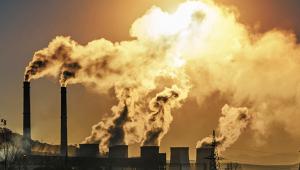More than 150 world leaders gathered in the French capital yesterday as the conference began. A number of leaders made new financial pledges and developing countries demanded new and ambitious commitments.
Addressing the conference, United Nations secretary general Ban Ki-Moon warned that there was no room for “indecision, half measures or merely gradual approaches”.
“History is calling,” he said. “I urge you to answer with courage and vision.”
US president Barack Obama called for a flexible agreement that “paves the way for regularly updated targets”, Chinese president Xi Jinping said “countries should be allowed to seek their own solutions according to national interest” and Russian president Vladimir Putin called climate change “one of the gravest threats humanity is facing”.
Leaders from across the world made impassioned speeches, but some were considered merely platitudes. UK prime minister David Cameron’s emotive pleas to leaders for strong action were criticised by commentators and activitists for being unmatched to what many consider destructive climate policies at home. Others such as Australian prime minister Malcolm Turnball were similarly accused of window dressing.
Significant policy announcements were, however, made. Indian prime minister Narendra Modi launched an international solar alliance of over 120 countries with French president François Hollande.
It aims to advance solar power generation across the world using funding supplied by membership fees and international agencies. France’s climate change ambassador called the alliance a “game changer”.
Meanwhile, 37 countries including Canada, Germany, the US and the UK and a number of companies and international organisations released a communiqué supporting accelerated action to eliminate fossil fuel subsidies.
A recent report by the UK’s Overseas Development Institute slammed a number of the communiqué’s G20 signatories, the UK and the US included, for handing out hundreds of billions of dollars in fossil fuel subsidies despite past pledges to cut them out.
New Zealand prime minister John Key, who presented the communiqué, also announced New Zealand would commit $20m over four years to reducing emissions from agriculture and up to $200m for climate-related support for Pacific nations over four years.
Justin Trudeau, prime minister of Canada, pledged $2.65bn over the next five years, while Norway’s prime minister Erna Solberg vowed to double the country’s current donation to Green Climate Fund ($258m) if the fund ensures verified emissions reduction from deforestation and forest degradation.
Spain’s prime minister Mariano Rajoy Brey also pledged to donate $120m to the Green Climate Fund.
A number of multilateral development banks also released a joint statement stating they would substantially increase their climate financing to support the outcomes of COP21.
Germany, Norway and the UK pledged a combined $300m to reduce deforestation in Colombia.
Switzerland, France, Germany, the US, UK and others also made a joint pledge of $248m to the Least Developed Countries Fund, which included $51m from the US and $53m from Germany. The fund was reported to have run dry in July this year after allocating nearly $1bn in projects since its inception in 2001.
The world’s 48 least developed countries, who contribute very little to climate change but are often most vulnerable to its effects, hope the pledges will revive the fund.
The group has also repeatedly called for a temperature rise limit of 1.5°C, as opposed to the widely accepted 2°C, a call which was echoed by a coalition of 20 countries known as the Climate Vulnerable Forum.
Its members, including Afghanistan, Rwanda and the Philippines, issued a declaration urging the Paris agreement to include a 1.5°C limit and calling for 100% renewable energy and full decarbonisation by 2050, with peak emissions by 2020 at the latest.
Other announcements included: a Climate Resilience Initiative, presented by Ban, to help vulnerable countries become resilient to climate change; a coalition of 28 private investors to boost emerging clean technologies; and a Transformative Carbon Asset Facility from the World Bank, Germany, Norway, Sweden and Switzerland to secure $500m in funding to promote carbon pricing in developing countries.













